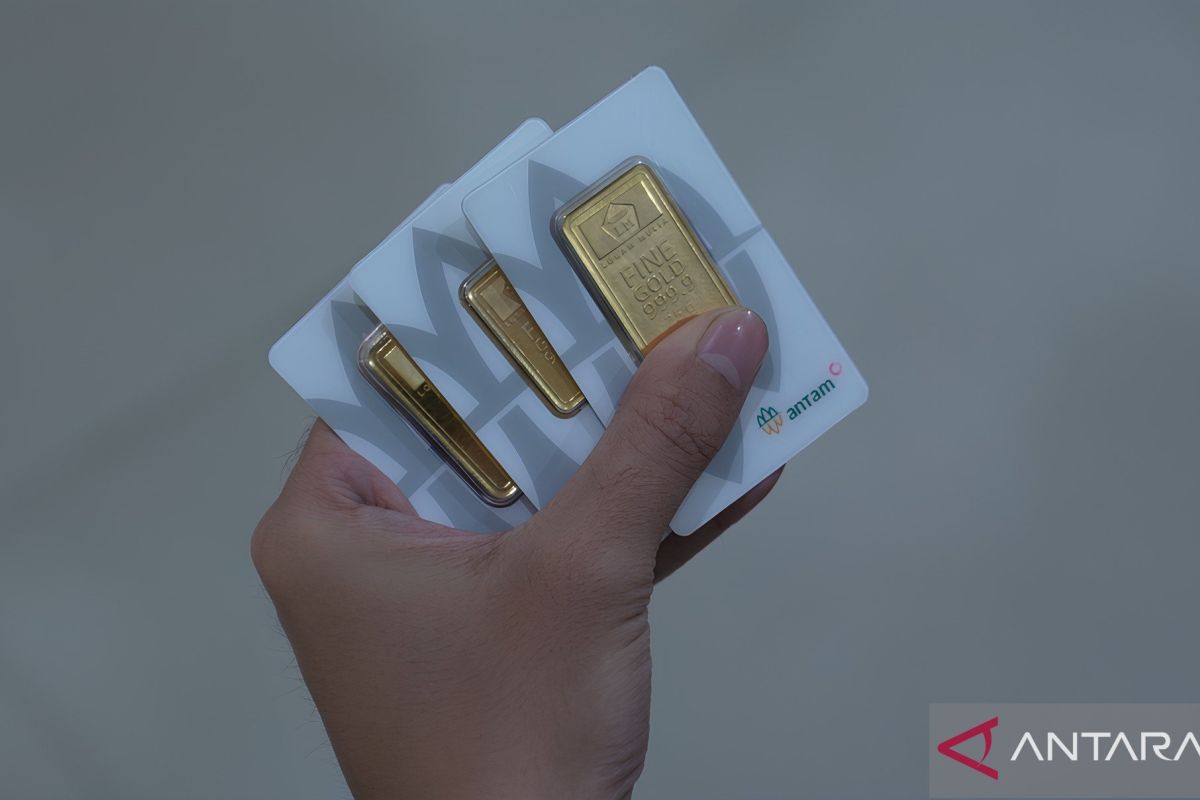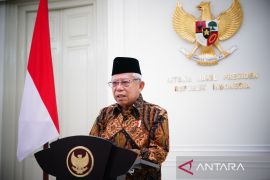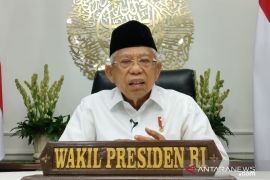The goal is to help retain more value generated from gold transactions within the country.
According to President Prabowo Subianto, the bullion banks could help the state save foreign exchange by allowing the entire gold supply chain to remain onshore. This is important, considering that much of the gold mined in Indonesia ends up being held overseas, he said.
"We hope this (bullion banking system) will increase our gross domestic production. If I am not mistaken, it can add Rp245 trillion (to the gross domestic product), it will also open up 1.8 million new jobs," Prabowo informed.
Bullion banks are expected to boost the country's gold potential, which is yet to be utilized optimally.
As per a study by state-run pawnbroker PT Pegadaian, in 2023, Indonesia had 2,600 tons of gold reserves. Meanwhile, 1,800 tons of gold was potentially held by the community and not utilized productively.
Other figures peg Indonesia's raw gold (doré) exports at US$5 billion per year, and gold imports at US$2 billion.
The bullion banks are expected to help build a gold-based industrial ecosystem, and thereby reduce dependence on foreign gold markets and maximize the use of domestic gold.
Benefits of bullion banks
According to the Coordinating Ministry for Economic Affairs, the operationalization of bullion banks in Indonesia would provide three benefits.
First, it would encourage the optimization of domestic gold refining. By doing so, bullion banks can help integrate gold producers with the financial ecosystem and the gold-based industry.
As per the US Geological Survey, Indonesia was the 10th leading gold producer globally, with a production value of 100 metric tons in 2024.
This means that by maximizing domestic processing, the added value of gold production could increase, which, in turn, could boost state revenues.
Second, bullion banks could expand the gold trade carried out by financial services institutions through gold deposit and savings schemes for the public and business actors.
"If, for example, people save their gold under their pillows, then we cannot do anything about it. But with bullion banks, at least 70 percent of the gold that is stored in these banks can be channeled back in terms of gold financing," the ministry's deputy for coordination of management and development of state-owned enterprises, Ferry Irawan, explained.
"We hope this can turn the wheels of the economy faster," he added.
Third, bullion banks could help strengthen the jewelry industry through a gold financing scheme. Easy access to gold raw materials could accelerate the growth of the gold jewelry industry.
Indonesia currently has more than five large jewelry manufacturers and more than 30 thousand small- and medium-scale jewelry manufacturers, with the total national production capacity estimated at 65 tons of gold per year.
Regulations
Indonesia decided to establish bullion banks after looking at several countries that have successfully run such banks for years.
It started by devising regulations, which serve as the basis for financial services institutions to act as bullion bank organizers.
Law Number 4 of 2023 concerning the Development and Strengthening of the Financial Sector regulates various bullion bank business activities that can be run by financial services institutions.
The law has been strengthened with the issuance of more technical regulations that are regulated by the Financial Services Authority (OJK) Regulation Number 17 of 2024.
The regulatory framework includes the principle of prudence, capital requirements, risk management, transparency, and phasing of bullion business activities, according to the OJK.
It also regulates the implementation of anti-money laundering programs, prevention of terrorism financing, prevention of mass destruction proliferation, anti-fraud strategies, consumer protection, and reporting systems by financial services institutions related to bullion bank business activities.
The OJK explained that only those financial services institutions whose main business is credit distribution can run gold banks.
Currently, only two financial services institutions have obtained permits to provide bullion bank services: PT Pegadaian and Bank Syariah Indonesia (BSI), the country's largest Islamic bank.
Performance
PT Pegadaian has obtained permits for four bullion bank services -- savings, financing, deposits, and trading. These are provided through gold deposit product services, gold working capital loans, corporate gold deposit services, and gold trading.
In the less than three months since the gold bank was launched nationally, PT Pegadaian's bullion bank services have witnessed record growth.
As of April 30, 2025, gold deposits by 31 thousand customers reached a balance of 1.1 tons. The bank also issued gold working capital loans of 150 kilograms worth Rp233 billion.
Meanwhile, the value of gold trading transactions reached up to Rp2 trillion, or equivalent to 1.2 tons of gold, and corporate gold deposits amounted to 2.9 tons.
"Gold banks can increase added value related to our country's ideals to support downstreaming, create gold investment diversification, and increase financial inclusion for the community," director of marketing and product development at PT Pegadaian, Elvi Rofiqotul Hidayah, said.
The BSI, which has also obtained permission to offer bullion bank services, is currently running two services -- gold trading and deposit.
The Islamic bank introduced the BSI Emas product with a buy and deposit system that can be availed at the same time and in one transaction. Based on data, as of May 2025, BSI Emas transactions through the BYOND application reached 830 kilograms of gold.
The BSI ensures that it has physical gold before selling gold digitally to customers to ensure the convenience and security of sharia transactions, particularly to make sure gold transactions carried out by its customers are halal compliant.
According to the director of sales and distribution at BSI, Anton Sukarna, BSI Emas was developed over the past one to two years. Thus, the inauguration of the national bullion banks by President Prabowo in early 2025 helped accelerate BSI Emas services.
"If we look at it year to date from December 2024 to May 2025, it grew by around 100.26 percent, or twice as much as the position in December 2024, when it grew by 444.98 kilograms," he informed.
The bullion bank products offered by financial services institutions give people more options when choosing gold investment products.
However, people must choose them based on their risk profile and investment needs.
"If you need liquid funds in the short term, you can (choose) gold savings. If it is for the medium term, you can use gold deposits," Nur Hidayah, head of the Sharia Banking Doctoral Study Program at UIN Syarif Hidayatullah Jakarta, said.
"Meanwhile, if you need it for investment, you can also pay for gold in installments," Hidayah added.
For these reasons, bullion banks are expected to grow the economy, employment, and investment in Indonesia. They are also expected to become one of the drivers of Indonesia's economic growth and improve people's welfare.
Related news: Prabowo unveils Indonesia's maiden bullion bank for gold downstreaming
Related news: Indonesia's first bullion bank optional, not compulsory service: Govt
Translator: Rina Nur Anggraini, Yashinta Difa
Editor: Primayanti
Copyright © ANTARA 2025












